PRACTICE SAVINGS
Respectfully introduce the article "PRACTICING SAVINGS" by Comrade To Lam - General Secretary of the Central Executive Committee of the Communist Party of Vietnam.
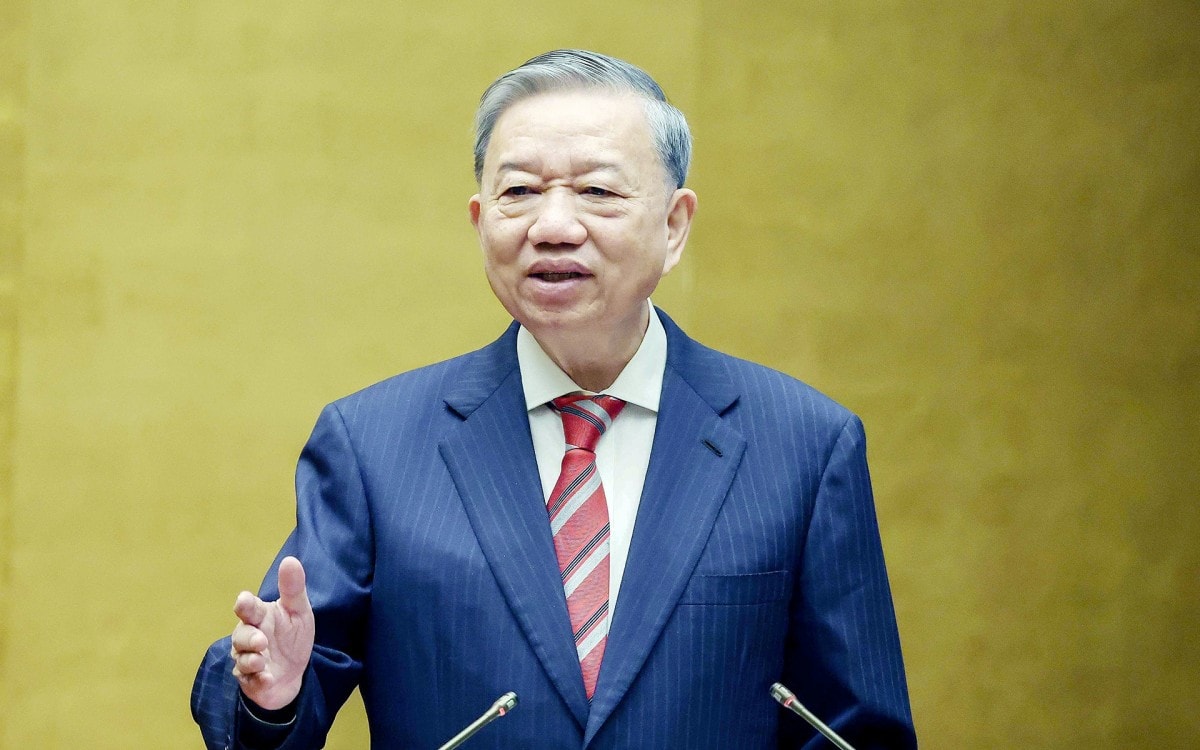
Saving and anti-waste are two elements that are organically linked together, two pillars to prosperity and wealth for the whole family, country and society. Practicing saving and anti-waste is something that needs to be done in the life of each individual and the whole society, is the "cornerstone" contributing to building a civilized and sustainably developed society. It must be a common responsibility and needs to become a way of life, a daily culture of each of us.
Vietnamese culture is a culture associated with the promotion of a frugal and simple lifestyle. From there, the practice of thrift among Vietnamese people has been summarized in folk songs and proverbs, passed down orally from generation to generation[1], such as ""Better to eat well than waste", ""Oh, don't leave your fields fallow/Every inch of land is worth an inch of gold";"When the harvest is good, don't neglect corn and potatoes/When the harvest fails, who will be your companion?"; "eat in moderation, use sparingly";"Save money in advance/In case of need, don't bother anyone"...
President Ho Chi Minh - the Teacher of the Vietnamese Revolution is a shining example of practicing thrift. Immediately after leading the successful August Revolution, facing the threat of famine, illiteracy, and foreign invaders, at the first meeting of the Provisional Government of the Democratic Republic of Vietnam on September 3, 1945, President Ho Chi Minh raised 6 urgent issues, in which he especially emphasized the launching of a movement to increase thrift to fight hunger and build the country. Uncle Ho repeatedly explained clearly about thrift so that everyone could understand correctly and practice well:"What is thrift? It is saving, not being extravagant, not wasteful, not being indiscriminate…; Thrift is not being stingy. When it is not advisable to spend, then not a single coin should be spent. When there is something worth doing, something beneficial for the people, for the Fatherland, then no matter how much effort or money is spent, one should be happy. That is true thrift. Thrift must be resolutely against luxury… Therefore, luxury is a sin against the fatherland, against the people"[2]Uncle Ho considered saving an important art of social life. He emphasized the need to save labor:"one person does the work of two or three"[3]; save time: "Work must be on time, not late, not early. Work quickly, work thoroughly. Each day's work should be finished that day, do not wait until tomorrow. Remember: People have used sweat and tears to pay us during those hours. Whoever is lazy is deceiving the people.[4]Uncle Ho asked the Government to save money, save people's strength, save the blood and bones of soldiers and people:"We must know how to appreciate human resources as our most valuable asset. We need to wholeheartedly take care of our people's health and make reasonable use of their labor."[5], "When wealth is gone, it can be earned again; when time passes, time comes again. But when soldiers sacrifice, they sacrifice blood and bones, sometimes even their lives."[6]"We must preserve every drop of blood of our compatriots to build the future of the Fatherland"[7]. Or, save words:"talk less, do more"[8], "start with action"[9].
During the revolutionary periods, our Party and State paid special attention to the issue of practicing thrift, considering it a top national policy. During the war, under the leadership of the Party and President Ho Chi Minh, with the example of Uncle Ho, cadres and Party members, reasonable spending and thrift practice, every citizen tightened their belts, fasted, sacrificed all personal material interests to concentrate on the front line, helping to concentrate resources to liberate the country. Entering the period of innovation, our Party had many policies and issued many Directives on this issue, such as Directive No. 21-CT/TW, dated December 21, 2012 of the Secretariat of the 11th tenure on promoting thrift practice and combating waste; Directive No. 27-CT/TW, dated December 25, 2023 of the Politburo of the 13th tenure on strengthening the Party's leadership in practicing thrift and combating waste; Directive No. 42-CT/TW dated January 16, 2025 of the 13th Politburo on strengthening the Party's leadership in education work of diligence, thrift, integrity, uprightness, impartiality and impartiality; Directive No. 05-CT/TW dated May 15, 2016 of the Politburo on promoting studying and following Ho Chi Minh's ideology, morality and lifestyle clearly define"Organize learning, thoroughly understand and widely propagate…Ho Chi Minh's views and moral examples on:…. diligence, thrift, integrity, impartiality"; Regulation No. 37-QD/TW, dated October 25, 2021 of the Central Executive Committee on things that party members are not allowed to do and are not allowed to do"Organizing weddings, funerals and other personal or family events that are lavish, wasteful or for profit purposes."Institutionalizing the Party's policy, the Standing Committee of the 10th National Assembly issued the Ordinance on Practicing Thrift and Combating Wastefulness in 1998; which was upgraded to the Law on Practicing Thrift and Combating Wastefulness in 2005 by the 11th National Assembly and amended and supplemented by the 13th National Assembly to promulgate the Law on Practicing Thrift and Combating Wastefulness in 2013; the 2013 Constitution also stipulated"Agencies, organizations and individuals must practice thrift, fight waste, and prevent and combat corruption in socio-economic activities and state management."(Article 56); annually and periodically, the Government issues a comprehensive program on practicing thrift and combating waste.
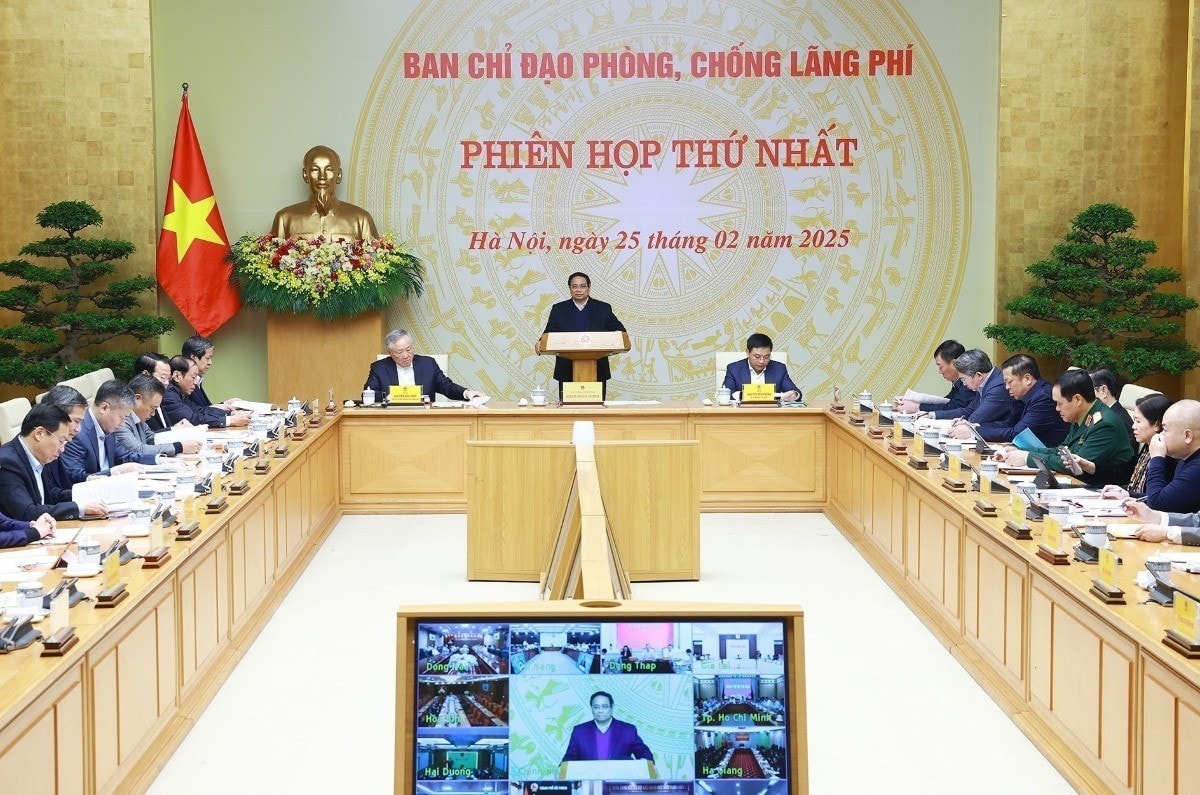
Implementing the Party's policies and the State's laws, practicing thrift throughout the Party, the entire people, and the entire army has achieved many positive results. Organizations and individuals, especially cadres and party members, have focused on practicing thrift in regular spending, enhancing the role of leaders in practicing thrift. Some agencies and units, when organizing congresses or founding anniversaries, have issued written notices."practice saving, do not accept congratulatory flowers". Many review and summary conferences have been organized by all levels and sectors in a concise, simple, time-saving manner, without using paper documents, and held online meetings to save costs. The use of shared cars for senior officials on business trips has also been implemented in many places. The situation of abandoned land and "suspended" planning has been gradually overcome. The management and use of working headquarters have basically been carried out in accordance with the purpose, norms and standards. Many enterprises have strengthened the management of norms related to production costs, especially indirect costs, to lower product prices; cut production and business costs, and strengthened the management of consumption norms to improve production and business efficiency. In particular, from the end of 2024 to now, implementing the conclusions of the Central Committee, the Politburo and the Secretariat have basically led and directed the completion of the arrangement and streamlining of the apparatus of the Party, Government, National Assembly and Fatherland Front agencies at the central and local levels; thereby reducing the number of focal points, saving costs, creating conditions for the immediate implementation of the policy of exempting and reducing tuition fees for students. In addition, according to preliminary calculations, when implementing the policy that the 11th Central Conference of the 13th tenure agreed on merging provinces, not organizing at the district level and merging at the commune level, saving regular expenditures annually. According to preliminary calculations, the savings in regular expenditures of the State budget in the 2025-2030 period is more than 20,000 billion VND/year; from 2030 onwards, saving over 30,000 billion VND/year. That is, we have not calculated the specific value of more than 18,500 headquarters of agencies and units that no longer have "office" functions when implementing the 2-level local government model.
Besides the results, the practice of thrift still has many shortcomings, limitations, and very low efficiency. The policies and strategies on thrift have not really been effective; waste and loss of assets and state budget have been and are taking place on a large scale, causing many serious consequences. The practice of thrift has not become a regular habit; thrift has not become a permanent awareness of a part of cadres, party members, civil servants, public employees and people. Waste does not only exist in state agencies but also in the social activities of the people. The tendency to use foreign goods, luxury goods, branded goods, giving gifts of great value; the mentality of enjoyment of a part of the people, especially the young, while the average income of the whole country has just surpassed the average income threshold, low labor productivity... are worrying manifestations of the practice of thrift. Besides cadres and party members who always uphold the Party spirit, set good examples, take the lead in practicing thrift, fighting waste, have a high sense of responsibility in managing, using, and saving public assets, and do not fall into the "vortex" of power, money, luxury, and enjoyment... there is still a large number of cadres and party members, including leaders, who lack a sense of responsibility, like to enjoy life, like material things, causing loss of funds and assets, waste in consumption, and use public funds for personal expenses and interest groups.
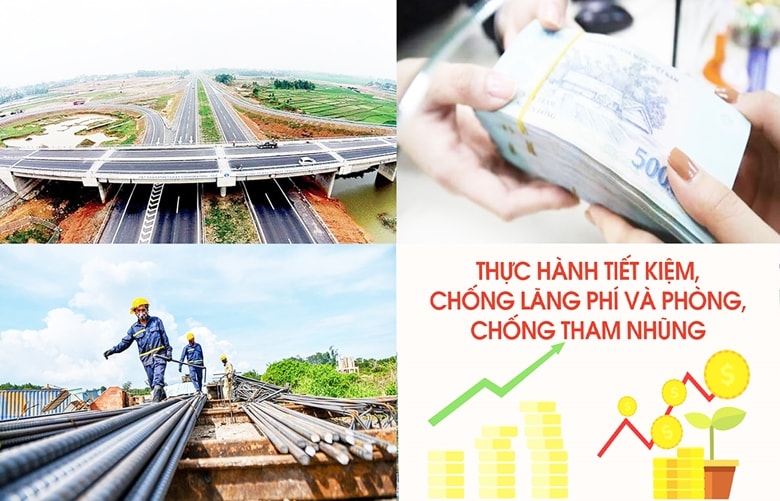
The main reason for the above-mentioned shortcomings and limitations is that the sense of responsibility and determination of some agencies, organizations and individuals is not high, not regular, not drastic, the policy mechanisms, internal rules and regulations are not complete, clear, and have many loopholes. Practicing thrift and fighting waste is sometimes formal and perfunctory. Some ministries, branches and localities are not really proactive in developing solutions to implement practicing thrift and fighting waste in the assigned fields and scope of management. The Law on Practicing Thrift and Fighting Waste has not really entered into real life, the regulations are still general, leading to a lack of effective mechanisms and measures in implementation. The program on practicing thrift and fighting waste is still formal, not yet entering into the real life of each agency, unit, locality, each family and each individual, and has not yet set out specific goals, targets and evaluation criteria. Many wastes and violations have been discovered but have been slow to be dealt with; people who practice thrift or discover waste have not been promptly commended or rewarded, leading to poor compliance with the law. Inspection and examination of thrift practice and waste prevention at all levels and sectors have not been very effective.
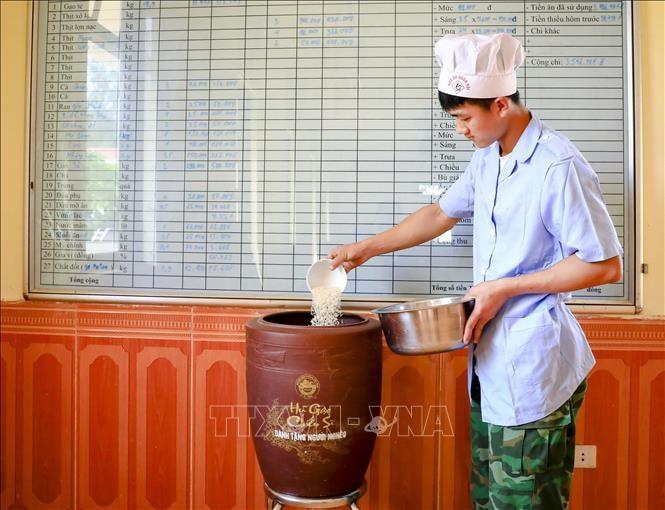
The 11th Central Conference of the 13th tenure has highly agreed on historic decisions, including continuing to reorganize the political system, merging some provinces, not organizing at the district level, merging communes, creating the premise for fundamental changes in the practice of thrift in our country in the new period. To achieve the highest requirements in the new revolutionary period that the 11th Central Conference has agreed on, that is"high-quality development, rapid development and sustainable development","proactive, self-reliant and autonomous in development"to achieve the highest goal "stabilize, develop and improve people's lives"To successfully achieve the two 100-year goals, along with arranging a streamlined, strong, efficient, effective and efficient organizational structure, it is necessary to focus on implementing well the following issues:
The first,Unifying awareness, practicing thrift and fighting waste is one of the most fundamental solutions for the country to overcome all storms in the context of the international situation with many fluctuations, directly and multi-faceted impacts on socio-economic development and ensuring social security.. Historical facts have proven that thrift is one of the key factors creating great potential for our entire Party, people and army, despite being an economically poor country, with people's material lives being difficult, even in the context of "famine", we still "tighten our belts", focus on the resistance war, save rice for the battlefield and have defeated the powerful colonial and imperialist invaders, liberated the nation and unified the country. In the face of new difficulties and challenges, with the tradition of steadfastness and indomitability, with the unity of the entire political system and the entire people, promoting the practice of thrift and fighting against waste will create a source of endogenous strength, a great internal force to promote the sustainable development of the economy, help the country move forward steadily, achieve strategic goals, and at the same time take better care of people's lives. Therefore, all citizens, agencies, units, organizations and enterprises need to have specific plans and implement reasonable revenue and expenditure; cadres and party members, especially leaders and managers, must be exemplary and mobilize their families and people to actively participate; all sectors, all professions, all households and all people must promote production and business, improve productivity, quality and efficiency of labor and production, thoroughly practice thrift, and minimize waste of time, money, property and effort.
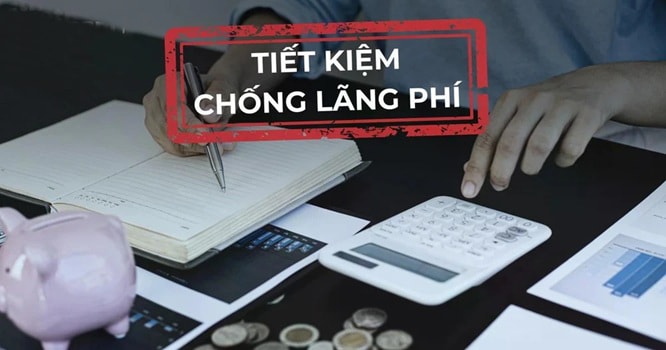
Monday,Strongly deploy fundamental solutions to create substantial changes in practicing thrift and fighting waste..The focus is on:(i)Focus on perfecting institutions, creating a basis to thoroughly overcome waste caused by institutions, remove barriers, difficulties, and obstacles that hinder development, clear bottlenecks to create a foundation for development, especially issues related to bidding, budget, public investment, private economy, science and technology, innovation, digital transformation and the Revolution in streamlining and streamlining the organization of the political system. Quickly research, amend and supplement the Law on Practicing Thrift and Combating Wastefulness, creating a comprehensive and solid political and legal basis for practicing thrift in all sectors, all professions, all cadres, party members and people.(ii)Minimize administrative procedures and compliance costs, create the greatest convenience for people and businesses; switch from pre-inspection to post-inspection, eliminate the "ask-give" mechanism; decentralize and delegate authority to competent agencies and localities to resolve and take responsibility. By 2025, ensure that 100% of administrative procedures related to businesses are performed online, smoothly and effectively; 100% of administrative procedures are not limited by provincial administrative boundaries.(iii)After arranging the organization of the political system to be lean, compact, and strong, in order to operate effectively, efficiently, and effectively, the most fundamental factor is to focus on building a team of cadres with the right knowledge, skills, and working attitudes to achieve the highest efficiency in each field they are responsible for. In particular, management skills, task execution; passion, enthusiasm, and responsibility in each job, each assigned task; standard culture in communication, behavior, proactive awareness of saving... are the requirements set for cadres in the new organization.(iv)Tighten discipline in financial and budget management and use; practice thrift, combat waste, effectively use state financial resources in conjunction with mobilizing social resources and streamlining the apparatus. Strengthen management and use of public assets, ensuring compliance with standards, norms, regimes and requirements of tasks, focusing on arranging and handling assets, especially houses and land associated with streamlining the apparatus. Resolutely and thoroughly save on unnecessary expenditures to ensure resources for natural disaster and epidemic prevention and control, supplement development investment capital and economic development; strive to further increase the rate of breakthrough expenditures for science and technology development, innovation, national digital transformation, and support for private economic development.(v)Create a legal corridor and resources for the private economy to develop, promote the spirit of entrepreneurship and innovation throughout society, create conditions for all people to have the opportunity to contribute, increase labor productivity, and enrich themselves, their families and society.
Tuesday,Building a culture of thrift; making the practice of thrift and anti-waste "voluntary", "self-conscious", "daily food, drink, and clothing".Research and launch and maintain the annual "National Day of Thrift Practice" to promote and spread the movement of the whole society to raise awareness of thrift practice. Promote the campaign "Studying and following Ho Chi Minh's ideology, morality and lifestyle"; promptly reward and commend exemplary cadres, soldiers and people with initiatives in work and economic development that bring practical results in thrift practice; have strict sanctions against collectives and individuals, first of all the heads of agencies and units in the political system and party members who have not fully implemented the Law on Thrift Practice and Anti-Waste. Continue to promote the fight against corruption, waste and negativity, considering this as one of the fundamental solutions contributing to building a culture of thrift.
In his Report to the Fourth Congress of the Communist International, VI Lenin emphasized"Anyway, we have to streamline the state apparatus, we have to be very frugal, as much as possible. We are frugal aboutin every aspect, even school expenses. We had to do this because we knew that if we did not save heavy industry, if we did not restore heavy industry, we would not be able to build any industry at all, and without industry, in general, we would perish, we would no longer be an independent country."[10]; Beloved President Ho Chi Minh emphasized"In the process of building socialism, thrift is a great policy, a great ethic, a way of working and living that must never be neglected."[11];To bring the country firmly into a new and successful era, our entire Party, people and army must strive to practice thrift and fight waste.
[1] See also: Vu Ngoc Phan, Vietnamese proverbs, folk songs, and folk songs, Literature Publishing House, 1996; Phuc Hai, Selection of Vietnamese proverbs, folk songs, and folk songs, Thoi Dai Publishing House, 2014; Mai Khanh, Vietnamese idioms, proverbs, folk songs, and folk songs, Literature Publishing House, 2022...
[2] Ibid., Ho Chi Minh, Complete Works, volume 6, pp.122-124
[3] Ibid., Ho Chi Minh, Complete Works, volume 4, p.181
[4] Ibid., Ho Chi Minh, Complete Works, volume 5, p.122
[5] Ibid., Ho Chi Minh, Complete Works, volume 13, p.70
[6] Ibid., Ho Chi Minh, Complete Works, volume 7, p.335
[7] Ibid, vol. 4, Ho Chi Minh, Complete Works, p.229
[8] Ibid, vol. 5, Ho Chi Minh, Complete Works, p.217
[9] Ibid, vol. 3, Ho Chi Minh, Complete Works, p. 457
[10] Ibid., VI Lenin, Complete Works, National Political Publishing House, Hanoi 2005, volume 45, pp. 333-334
[11] Nhan Dan Newspaper, No. 2149, February 5, 1950, p.2


